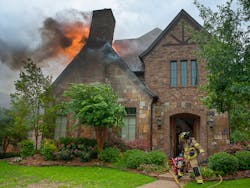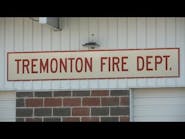Which came first, the chicken or the egg? This question continues to puzzle and fascinate many and may never be solved to everyone’s satisfaction. More importantly, it offers a way of looking at an issue, which can be helpful. Two subjects can sometimes be so intertwined that whether you begin with one and work to the other or vice versa, it can be instructive. Building on this idea, I would like to ask a similar type of question: which came first, fireground operations or ethical decision making? Historically, the question is easy to answer. Ethical deliberation has clearly preceded fireground tactics and strategies. However, new technologies, integrated and intergenerational workforces, as well as the multicultural communities we serve have led to moral confusion. So it seems to me, we can work backwards from something we know quite well—fireground operations—to help make sense of something that is often intimidating—what is the morally correct thing to do?
All of our major fireground activities derive from moral concepts. Like the moral landscape we now face, the fireground is a dynamic and changing environment. It comprises ever-changing combustibles and fuels, an assortment of construction types, and the need to apply fresh thinking and strategies. These unique dangers and concerns call for an aggressive yet controlled response. Nevertheless, first responders have grown accustomed to working in this intimidating environment, responding to each challenge appropriately. During fireground operations safety is an orienting goal, we risk our lives to save others, and we are guided by standard operation procedures (SOPs). Let’s work backwards from these components to arrive at a sound ethical decision-making model.
Safety is the desired outcome
While we typically downplay it to our family and friends, we engage in a dangerous profession. According to the National Fire Protection Association (NFPA), “In 2014, 64 firefighters died while on-duty in the U.S.”1 Already in 2015, there have been 49 firefighter fatalities reported.2 It is every firefighter’s desire and goal to reduce these numbers to zero. The safety of firefighting personnel is all encompassing and a shared priority on every emergency scene. True, we take risks, but do so in the safest manner possible. We drill this mindset into every new recruit and expect it from the seasoned veterans. This reflects the goal or situational element of fireground operations. Everyone on the fireground embraces the objective of safety and works to ensure its realization.
A good outcome on the fire scene is one in which we all return home. This is what an emphasis on safety produces. Similar to the goal of safety, ethics has an overarching goal of seeking the best outcome possible for a given situation. Doing the right thing ought to produce the best consequences. With every ethical encounter we must strive to understand what the problem really consists of for only then can we seek to determine the best outcome. Gather as much information as possible. What are the facts? What is the desired outcome? There are always contextual matters that help clarify the situation. While we don’t want to bend or break rules, context allows us to apply rules and guidelines in the most helpful manner.
Not too long ago, I responded to a bee call where a hive had taken up residence in an elderly lady’s back yard. She had gone out to water her flowers and after being stung, called 9-1-1. Upon our arrival, the bees were not acting aggressive; hence, our duty was to advise the homeowner to avoid the area and wait for the bees to leave on their own (usually within 24-hours) or call a beekeeper to come remove the hive. Typically, we are not supposed to recommend a particular beekeeper so as to avoid any conflict of interest. The homeowner wanted the bees out of her backyard, but was new to the area, a bit confused, obviously scared, and did not know whom to call. We told her she could Google beekeepers in her area and choose one. She had no concept of Google and handed us the Yellow Pages saying, “I don’t know who to call.” The rule says not to make a recommendation, but it was obvious that the situation required us to provide a bit more step-by-step assistance, which is what we did—another satisfied and happy customer.
Caring for people
Safety is closely connected to another element characteristic of the fireground—caring for our neighbors. While safety, in one sense, looks inward to our members, this component looks outward to those endangered by the fire. Firefighters willingly go into harm’s way for the sake of their community. This reflects the chief reason we exist. The fire service was created to serve and protect the lives of our neighbors and fellow citizens. The value of human life is our "prime directive." This pledge to the welfare of our neighbors reflects a variety of character traits found in good firefighters. Traits like courage, sacrifice, wisdom and trustworthiness are necessary for our job. This reflects the personal element of fireground operations.
Ethics is concerned with human flourishing.3 Morality is an outward endeavor. We ought to care for our neighbors. This is why providing "customer service" is so important to the fire service and ought to be carried over into our personal relationships. A customer (or friend) is someone who depends upon another. No one is an island, we all go through life depending and relying upon others. Service is a verb, an action word. So we ought to always ask the question: How do we best serve our fellow human beings with whom we are mutually dependent?
The saying is true that the person who seeks happiness never finds it, but the one who seeks the happiness of others receives much in return. Our outward concern for others begins with inward humility and the recognition of our mutual dependence. Certain virtues promote this outlook. A sampling of which (mirroring those needed on the fireground) includes courage, sacrifice, wisdom, and trustworthiness. We need to ask ourselves: What kind of person do I want to be? What kind of reputation do I want? What are my motives? What virtue is most needed in this particular situation?
Standard operating procedures provide direction
Finally, we follow accepted norms while performing on the fireground. We refer to these rules as tactics and they are spelled out for us in our standard operating procedures (SOPs). These procedures and tactics are implemented via a command structure. Our incident command system identifies a specific leader for every emergency incident. Trusted command officers have shown a consistent know-how on emergency scenes. They’ve demonstrated an accurate knowledge of fireground tactics, concern for our customers and a heightened awareness of safety. In sum, they’ve earned the right to exercise authority. This constitutes the normative (rules and authority) element of fireground operations. Command has the responsibility to lead; firefighters have the duty to follow.
All of us inherently recognize a normative component (rules and authority) to ethics. We intuitively think this way because we were raised by authority figures—parents, teachers, coaches and others. They taught us to, “be good to others,” “do not steal,” and “tell the truth.” Steven Covey said it well, “The Character Ethic is based on the fundamental idea that there are principles that govern human effectiveness.”4 Regardless of what you believe concerning the origin of moral values, certain moral principles have stood the test of time, consistently demonstrating their effectiveness.
What moral principles apply to the situation I am currently faced with? What department, district, or city rules or laws apply to my current context? In order to answer these questions, we must take the time to learn the necessary rules and regulations and abide by them. We must continue to practice those fundamental rules we were taught when we were young. It never hurts to ask, “What would mom think?”
Conclusion
The emergency incident has multiple components all interacting simultaneously to bring the situation under control. Command is autocratic and firefighters perform their duties accordingly (the normative component). Our concern is for the welfare of our neighbors (the personal component) and everyone shares the goal of safety (the situational component). These unique features of the fireground easily translate into the ethical sphere. The best consequences and outcomes constitute the situational aspect. Moral behavior should produce human flourishing, the personal aspect. Finally, moral rules and duties comprise the normative aspect.
Doing the right thing is not always easy. It can often be hard to even determine the right thing to do. However, by utilizing the strategy applied in a firefight, we can do an ethical size-up to determine what the actual problem is. We can then apply the appropriate rules and regulations to the situation, while always remembering our job is to bring about the best possible consequences for the people we serve. Now it’s up to you.
References
- Fahy, Rita F., LeBlanc, Paul R., Molis, Joseph L. Firefighter Fatalities in the United States - 2014.(2015), National Fire Protection Association. 1.
- FEMA website. Accessed on August 2, 2015. http://apps.usfa.fema.gov/firefighter-fatalities.
- Poiman, Louis P. Ethics: Discovering Right and Wrong (5th edition) (2005). Boston, MA: Wadsworth Publishing Co.
- Covey, Steven R. The Seven Habits of Highly Effective People: Restoring the Character Ethic. (1990). NY: Simon & Schuster. P. 32.
MIKE MUNOZ began his career as a firefighter with the Peoria, AZ, Fire Department in 1986 and is currently the battalion chief. For over 12 years, he has taught ethics for the Peoria Fire Department and has also taught ethics at Glendale Community College and Fayetteville State University. He currently serves on the Ethics Committee at Phoenix Children’s Hospital. He received his Bachelor’s Degree in Public Safety Administration from Grand Canyon University, a Master’s Degree in Education (Counseling) from Northern Arizona University, a Master’s Degree in Religion from Reformed Theological Seminary, and a Master’s Degree in Bioethics from Loyola University Chicago. He is currently working on a Doctorate in Bioethics from Loyola.






